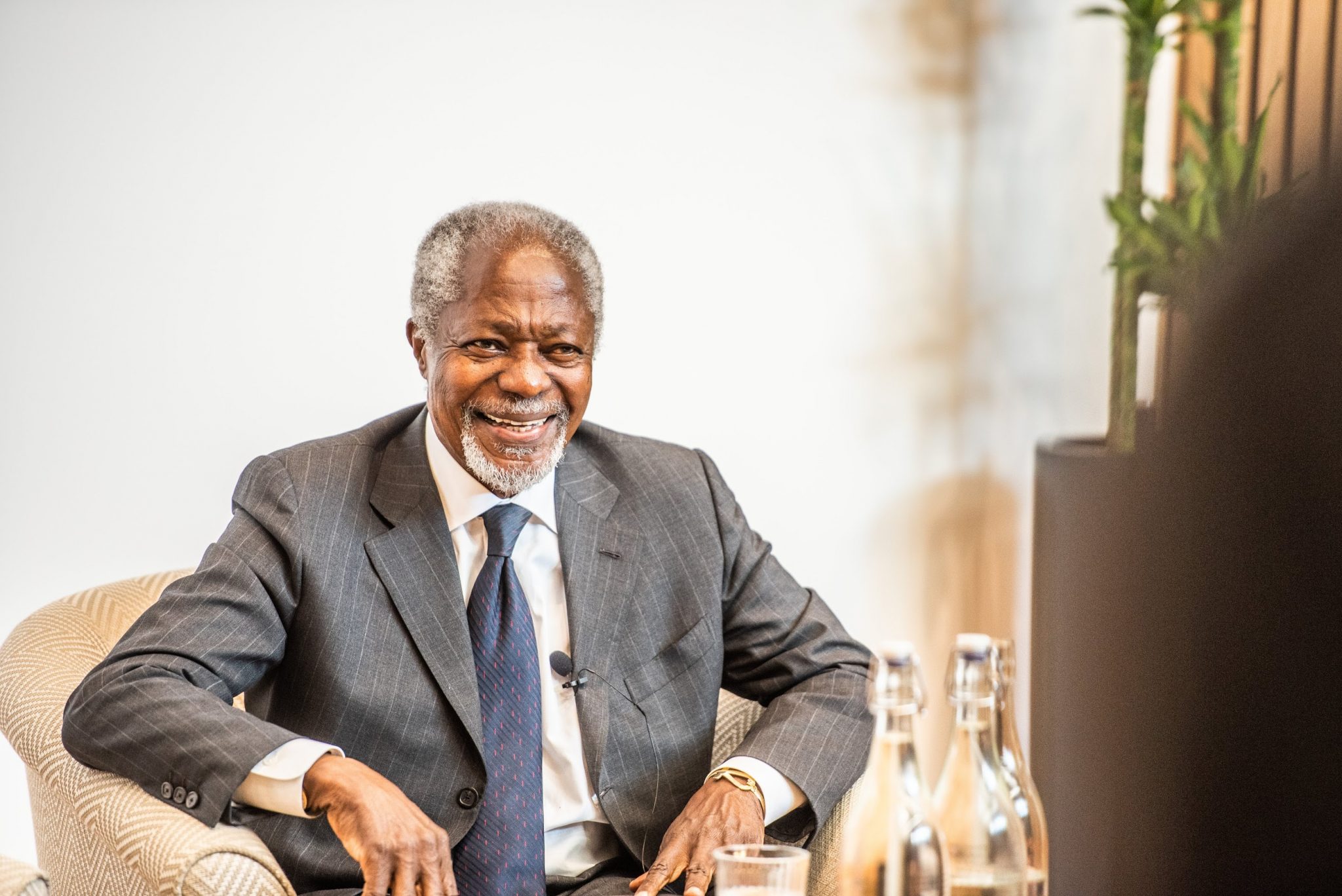Kofi Annan speaks at a panel at Columbia University on Africa’s green revolution
Advocating an African green revolution, former U.N. Secretary-General—and current Columbia University Global Fellow—Kofi Annan said Monday night that Africa needed to increase its crop yields and remove the need for imports and foreign food aid.
“You cannot eliminate poverty if you don’t grow enough to feed your community and yourself,” Annan said at Low Library, where he spoke with Earth Institute Director Jeffrey Sachs.
He noted that increased availability of food production technology would help Africa prosper.
“Africa can become a part of the solution to global food shortages,” Annan said. “We will be able to produce what we eat and what we can offer to the world.”
But simply growing more food is not enough: Annan and Sachs both emphasized the importance of connecting farmers to markets so they can sell their surpluses. They said that Africa is close to self-sustainability, noting all the currently available agricultural resources and potential growers. Sachs stressed that Africa’s green revolution would be a “practical agronomic reality” if it weren’t for politics, which have often gotten in the way.
Agriculture “disappear[ed] from the agenda because of sheer ideology—not knowledge, not historical understanding,” Sachs said.
But now, Annan and Sachs want make agriculture a priority again in Africa. “I have a feeling that we are now beginning to turn the corner,” Annan said.
In a question-and-answer session following the speech, audience questions ranged from Annan’s experiences as Secretary-General to specifics on his proposed African program.
In reference to the U.N.’s Millennium Development Goals, which promote global action to help solve poverty, Annan said that “we have not done as well as I could have expected” and that if “the Millennium Development Goals had been delivered … we could have made a much bigger difference than today.”
He also commented on the post-election turmoil in Kenya, challenges in the wake of the global financial crisis, and the need to reform the U.N. Security Council to include the voices of emerging and developing countries.
Though he acknowledged the many challenges facing Africa, Annan remained optimistic throughout the talk.
“I’m very hopeful for the younger generation in Africa. I think they are going to make a difference,” he said.
Audience reactions to Annan were generally positive.
“It was nice to listen to African people talk about Africa,” said Botswana native Jessica Eaton, CC ’14. “I thought that all his points were very interesting and feasible.”
Professor Pedro Sanchez, director of the Tropical Agriculture and Rural Environment Program at Columbia, had similar thoughts. “I was impressed by his wisdom and the way he communicated very tough issues effectively,” Sanchez said.
But others expressed concern that Africa was not involved in the process Annan advocated. There’s a “paternalistic rhetoric that things need to be done to Africa, not by Africa,” said Devapriyo Das, a journalist from Xinhua who previously worked in Uganda. “More African leaders need to be understood and heard at platforms like the U.N.”
As Annan said, “Africa is the next frontier, and we need to pay attention.”



